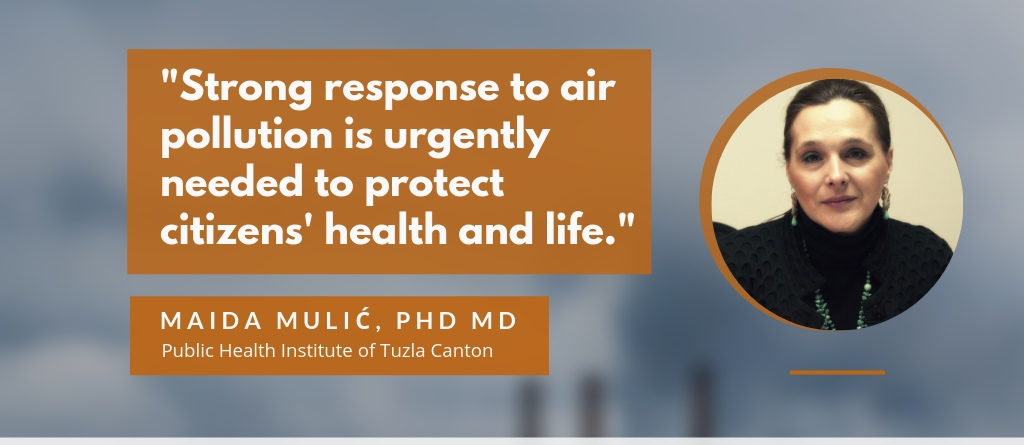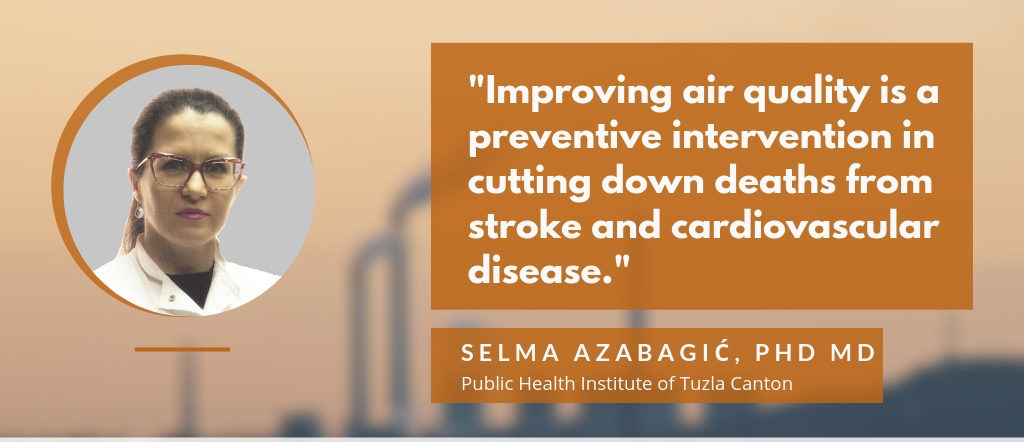Help us influence policymakers in Poland HEAL has been active in Poland for the past…
Bosnia and Herzegovina has the second highest mortality rate from air pollution in the world. New independent monitoring analysis underlines the need to tackle the air pollution crisis in the Bosnian city of Tuzla.Health groups as part of the Unmask my City initiative have been at the forefront of clean air efforts in Tuzla, to ultimately reach WHO recommended concentrations, which would prevent over 130 early deaths annually
Read more:
In 2018, health professionals in Tuzla have joined the global initiative UnmaskMyCity, a health sector led campaign for clean air in our cities to protect our health and our climate.
The health professionals speaking up came as a result of year after year of poor air quality and a lack of action to improve the situation. There have been many reports and news features on the air pollution crisis in Bosnia and Herzegovina, and how it affects the business and financial system of the country, putting the country as one of the worst globally in terms of pollution levels. The World Health Organization (WHO) has declared that Bosnia and Herzegovina has the second highest mortality rate (per 100.000 population) from air pollution in the world, after North Korea.
A key from doctors to local and national governments has been to:
- Establish a fully functioning monitoring system, with continuous monitoring of PM10 and PM2.5 at all measuring stations in Bosnia and Herzegovina throughout the whole year with publicly available data.
This year, Health and Environment Alliance together with health professionals in Tuzla assessed how much the people of Tuzla suffer from poor air quality.
Using the WHO AirQ+ tool, we calculated how much Tuzla’s public health would benefit from the enforcement of air quality legislation and going even more ambitions by applying WHO recommendations for air quality.
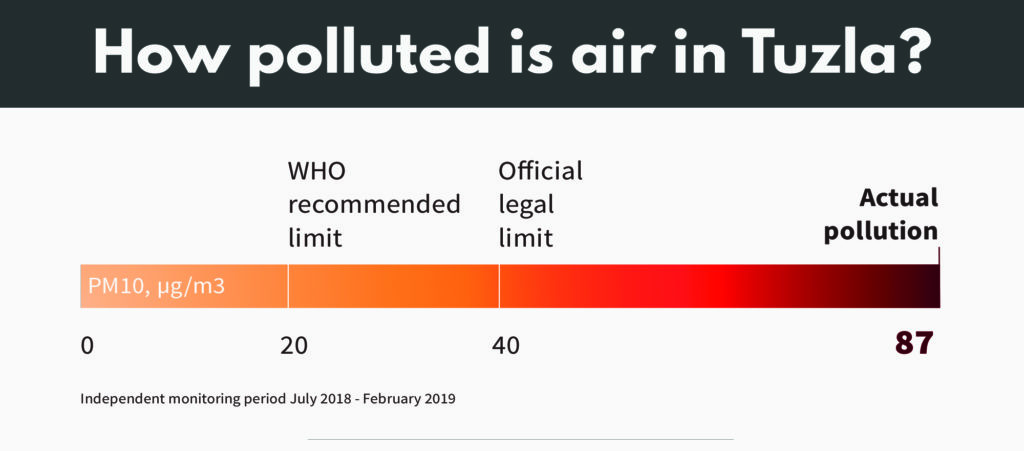
Current air quality is much poorer than the legal air quality standards and WHO recommends. We estimate that air pollution leads to 136 early deaths in Tuzla per year, which accounts for 17% of total deaths in a year. Thus, current poor air quality causes almost one fifth of deaths that could be avoided every year.
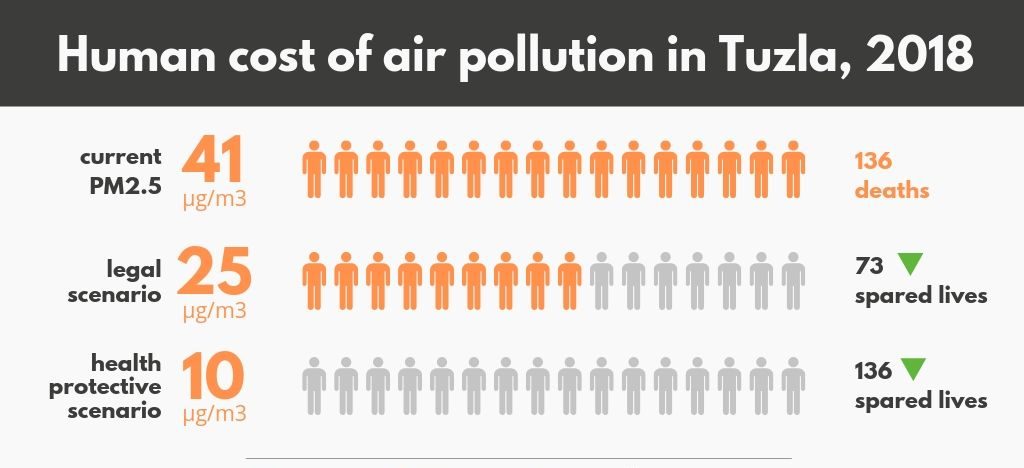
Moreover, exposure to PM10 pollution also resulted in 1339 new cases of bronchitis in adults in Tuzla in 2018 – almost one third of all incidences of bronchitis that year.
In 2018 in Tuzla, 8 adults over 30 years old died of lung cancer attributed to PM2.5 pollution.
If PM2.5 pollution was brought into line with the WHO recommendations, this action would reduce overall deaths from stroke in Tuzla by 29 percent.
Applying WHO air pollution guidelines levels would also mean that the number of children suffering from bronchitis in Tuzla would be reduced by 23 percent (or 160 cases) compared to the 695 children who had this condition in 2018.
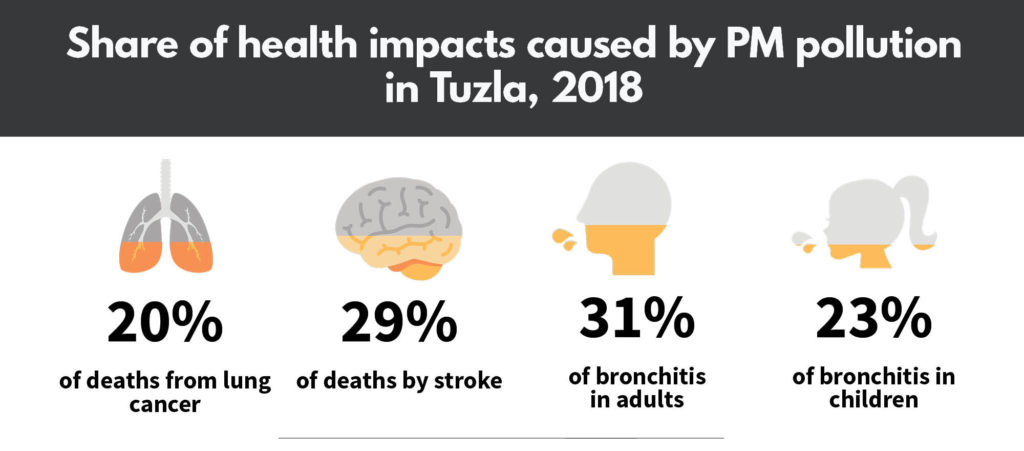
The health community in Tuzla highlights that the dire health and environmental consequences of air pollution, especially particulate matter, can be mitigated.
Recommendations to Bosnia and Herzegovina decision-makers, environmental protection agencies and the Tuzla authorities in particular include compliance with the existing air quality legislation, application of the “polluter pays” principle in a manner that is effective, proportionate and dissuasive to activities harming people’s health and taking the concerns of the community into account when making decisions on the future industrial development of the region.
